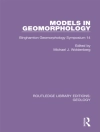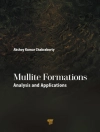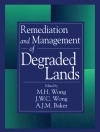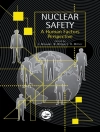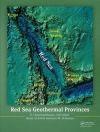Big Data Analytics for Smart Urban Systems aims to introduce Big data solutions for urban sustainability smart applications, particularly for smart urban systems. It focuses on intelligent big data which takes the benefits of machine learning to analyse large and rapidly changing datasets in smart urban systems. The state-of-the-art Big data analytics applications are presented and discussed to highlight the feasibility of big data and machine learning solutions to enhance smart urban systems, smart operations, urban management, and urban governance. The key benefits of this book are, (1) to introduce the principles of machine learning-enabled big data analysis in smart urban systems, (2) to present the state-of-the-art data analysis solutions in smart management and operations, and (3) to understand the principles of big data analytics for smart cities and communities.
Endorsements
‘Over the many years of collaboration between academia and industry, we noticed the common language is ‘big data’; with that, we have developed novel ideas to bridge the gaps and help promote innovation, technologies, and science’.
– Tian Tang, Independent Researcher, China
‘Big Data Analytics is a fascinating research area, particularly for cities and city transformations. This book is valuable to those who think vigorously and aim to act ahead’.
– Li Xie, Independent Researcher, China
‘For urban critiques, knowledge trains aspiring opportunities toward outstanding manifestations. Smartness has evolved or/ advanced rambunctious & embracing realities along (with) novel directions and nurturing integrated city knowledge’.
– Aaron Golden, SELECT Consultants, UK
Mục lục
Chapter 1. Introduction and editorial to the book.- Part 1. Big Data and Healthcare applications.- Chapter 2. The Correlation of Vaccination Progress and World-
Wide immunity against COVID-19.- Chapter 3. A Big Data Solution for Healthcare Infrastructure Development and the COVID-19 Prevention.- Chapter 4. A Federated Regression Analysis on Worldwide Mobility Trends During COVID-19 Early Stage.- Part 2. Big Data Solutions for Transportation Management.- Chapter 5. A Big Data approach for predicting Urban Transportation Cost.- Chapter 6. An Optimised Big Data Enabled Classification for Flight Status.- Chapter 7. A Time-series Classification of Freight Transport Data.- Part 3. Big Data Analysis Applications in Economy.- Chapter 8. A Multi-level Classification for Electronic Device Price.- Chapter 9. An Adaptive Feature Selection for Google App rating using Big Data solutions.- Chapter 10. A Time-series Pattern for Stock Market Prediction.- Part 4. Big Data Applications for Social Networks.- Chapter 11. An Optimized Clustering Model for Healthcare Sentiments on Twitter.- Chapter 12. How COVID-19 Pandemic Influences Social Networks?.- Chapter 13. Google Store’s User Feedback Mining.- Part 5.- Big Data Applications for Urban Environment Planning.- Chapter 14. Analysis of the Impact of Green Infrastructure on Carbon Monoxide Reduction.- Chapter 15. Big Data Analysis for UAV itinerary planning in Multi-Dimension Environments.- Chapter 16. Big Data Enabled Smart Home Applications a Carbon-zero World.- Chapter 17. Conclusions on Big Data Applications for contemporary and future urban sustainability research and practice.
Giới thiệu về tác giả
Saeid POURROOSTAEI ARDAKANI currently works as a Senior Lecturer in Computer Science at the University of Lincoln, UK. He is also an associated academic member of Lincoln Centre for Autonomous Systems (L-CAS), and has formerly worked at the University of Nottingham (UNNC) and Allameh Tabatabai University (ATU) as an Assistant Professor in Computer Science, member of the Next Generation Internet of Everything Laboratory (NGIo E) and Artificial Intelligent Optimisation Research group, and head of ATU-ICT center. He received his Ph D in Computer Science from the University of Bath focusing on data aggregation routing in Wireless Sensor Networks. Saeid’s research and teaching expertise centres on smart and adaptive computing and/or communication solutions to build collaborative/federated (sensory/feedback)systems in Internet of Things (Io T) applications and cloud environments. He is also interested in (ML-enabled) Big Data processing and analysis applications. Saeid has published more than 60 scholarly articles in reputed international journals and peer-reviewed conferences.
Ali CHESHMEHZANGI is the World’s top 2% field leader, recognised by Stanford University. He has recently taken a senior leadership and management role at Qingdao City University (QCU), where he is a Professor in Urban Planning, Director of the Center for Innovation in Teaching, Learning, and Research, and Advisor to the school’s international communications. Over 11 years at his previous institute, Ali was a Full Professor in Architecture and Urban Design, Head of the Department of Architecture and Built Environment, Founding Director of the Urban Innovation Lab, Director of Center for Sustainable Energy Technologies, and Director of Digital Design Lab. He was Visiting Professor and now Research Associate of the Network for Education and Research on Peace and Sustainability (NERPS) at Hiroshima University, Japan. Ali is globally known for his research on ‘urban sustainability’. So far, Ali has published over 300 journal papers, articles, conference papers, book chapters, and reports. To date, he has 15 other published books.


